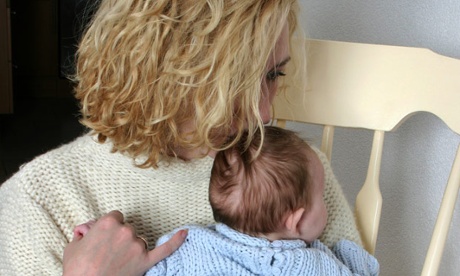
Eleven years on, I still remember the evening I decided to kill my baby daughter.
It's not something you're supposed to feel as a new parent with a warm, tiny bundle in your arms. But this is how postnatal depression can twist your logic. At the time it made perfect sense. Catherine was screaming, in pain. She had colic, there was nothing I could do about it. If an animal were in this much pain you'd put it out of its misery, so why not a human?
Postnatal depression can have this kind of effect even on the most reasonable woman, yet you won't find much about it in baby books. We're expected to love our kids the moment they pop out, even while the memory of the labour pains is still raw. I knew a baby would be hard work, of course, but I expected motherhood to be fulfilling.
As it happened I had a wonderful pregnancy, followed by a quick and easy birth. But the problems started soon after. Catherine wouldn’t feed, her blood sugar levels tumbled and I ended up bottle-feeding her, in tears, in a hospital room filled with posters promoting the breast. I was a Bad Mother within 48 hours.
Things were no better after the first month. This was meant to be a joyous time, but all I seemed to feel was rage and resentment. In pregnancy all the attention had been on me, and suddenly I was a sideshow to this wailing thing in a crib. I was tired, tetchy and resentful. My daughter had rapidly become a ball and chain. My freedom was over.
I kept hoping this was just the “baby blues” and that it would soon pass, but things only got worse. When colic set in, for around five hours each evening Catherine would scream, her face a mix of red and purple rage. No amount of pacing, tummy-rubbing or soothing words could stop this tiny demanding creature. So one night, alone with her in her room, I decided it would be best to put her out of her misery.
Thankfully my black thoughts did not lead to actions, but I'm not alone. It has been estimated that 10–15% of women will experience postpartum depression that requires medical help. But what causes some new parents to have such negative feelings at a time of nurturing? The fact is, scientists don't know what causes it. There are probably several factors, which makes an aspiring epidemiologist like me crack her knuckles happily, but does little for finding a “miracle cure”.
People often attribute the baby blues, and by extension postnatal depression, to the sudden drop in oestrogen and progesterone that women experience immediately after giving birth. But if it were that simple, why do some women suffer and others do not? Why do some feel glum for a few days, while others experience longer-term depression that only antidepressants seem to shift, rather than some kind of hormone therapy?
Yet at the same time, we can't blame the sudden shock of parenthood, loss of “freedom” and the harsh realities of looking after a baby. If this were the cause, then why are women more likely to suffer postpartum depression with not only their first child, but subsequent children as well? And usually more severely? After all, once you've had one you must have a pretty reasonable view of your ability to cope.
There are factors that seem to put some women more at risk, and these are listed on the website of Australia's Black Dog Institute. For instance, we're pretty sure that women are more likely to develop postnatal depression if they've had episodes of depression before. This was certainly the case for me, as I'd experienced periodic depression since my teenage years and had sought medical help for it at certain points in my life.
The Black Dog Institute also identifies childhood experiences, a previous miscarriage, stillbirth or termination, and a difficult birth as risk factors. More practical factors, such as the amount of social support you receive, were certainly a problem for me. I have always been reluctant to socialise, an introvert, and as an adult have always lived a considerable distance from my family, who could therefore offer only limited help.
It is no surprise to read that women in socially isolated situations and women who are perfectionists are more likely to hear the padding paws of the black dog as an accompaniment to the patter of tiny feet. The only thing I'm good at is being self-critical, so when the Perfect Mother didn't emerge from her cocoon, anger at myself for being so rubbish soon followed.
My daughter is now a vibrant, happy 11-year-old, and she has a 9-year-old brother. I also suffered from postnatal depression after my son was born, but somehow, though more acute, it was easier to handle because I knew what to expect. I caught my symptoms early. I knew I didn’t have to face it alone. I knew that with the right help it would pass.
It would be wrong to medicalise every woman who has ambivalent feelings about new motherhood. Parenthood is a joy but also a bind. Losing your sense of identity after becoming a mother, while quite normal, can be frustrating. But there are also cases, like mine, where it doesn't stop there. There are far deeper mental problems that need medical treatment and the telltale risk factors should be spotted earlier in pregnant women. If only the baby books I read, and the medical professionals I saw, had prepared me better.

